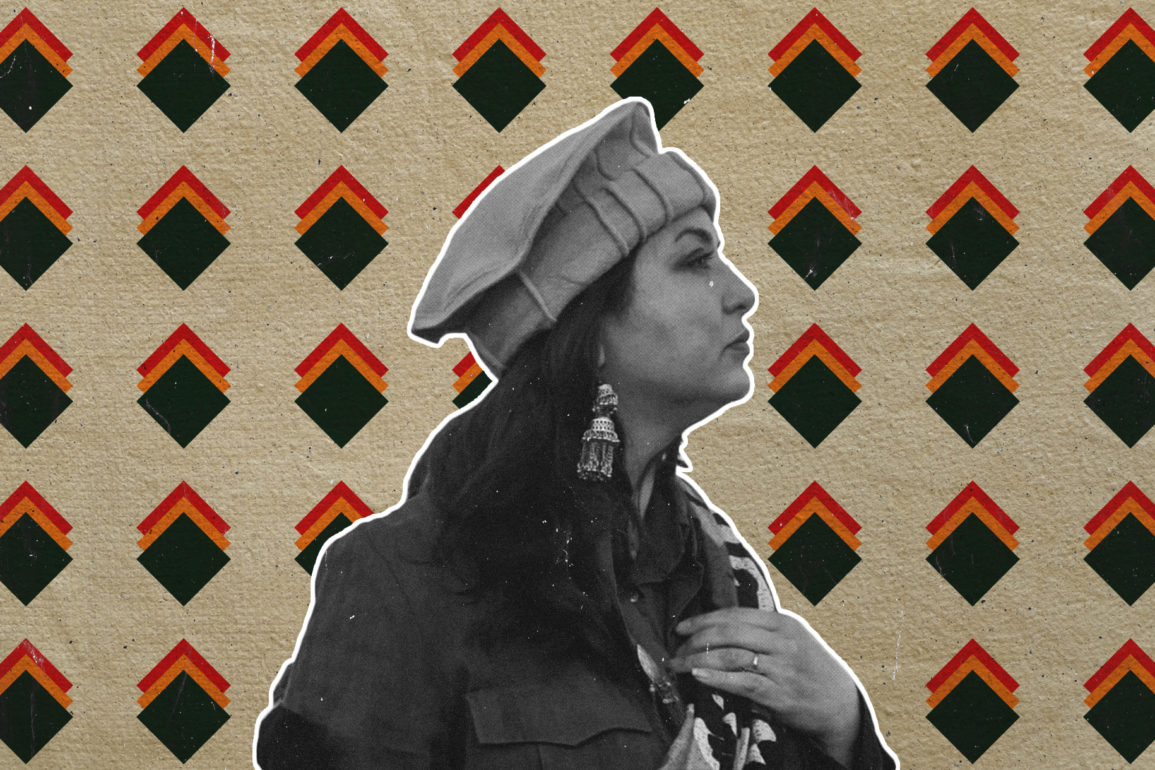She was drawn to singing from an early age, watching her father recite Hafez’s poetry and her grandfather, a clergyman, sing Persian poems. But even as a little girl, Samaneh’s passion for singing was faced with cultural taboos rooted in centuries of bias against women. Her childhood recollections of her parents and those around shushing her, so the neighbors wouldn’t hear her sing, speak of a lifetime of obstacles she had to endure to pursue a career in music as a solo vocalist. At age 39, Samaneh Mahmoudi (Naria) is an up-and-coming artist who, by law, cannot sing solo in her home country of Iran.
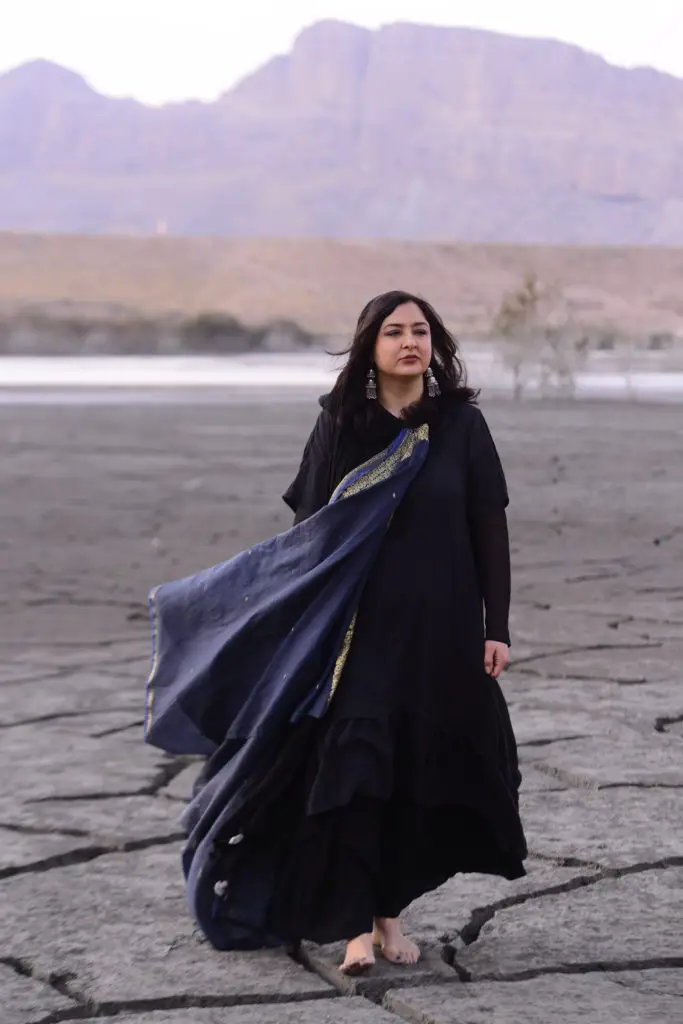
How Women’s Voices Were Banned in Iran
Historically, women in Iran have had a limited presence in music due to a variety of religious and sociocultural reasons which favored keeping women in the private sphere. For centuries, women’s music performances would be exclusive to the court of the kings, meaning women would sing, play music, or dance in the privacy of courtiers. The Constitutional Revolution in 1906 opened up a horizon of opportunities for women. The voice of Iftikhar Khanum, a singer, was recorded on a gramophone record in 1913, making her the first among women in Iran. In the coming decades, following a number of reforms by the Pahlavis (1925-1979) aiming to modernize the country, unprecedented opportunities became available to women. In this period, female artists became more engaged in music, while grappling with continued socio-cultural restrictions. Many used pseudonyms to hide their identities and were not usually supported by their families.
Women in Iran continued to perform in concerts, on TV, or on the radio until the Revolution of 1979, as extremists took over. An effective ban on singing solo in public or releasing solo vocals was put in place for female singers after Shia leaders forbade women from singing on the premise that their voices were provocative for men. By the late 1990s, after years of resistance by women, government policies changed, allowing women to be chorus singers. Ever since female singers have had the opportunity to perform exclusively for women in Tehran, and occasionally in other cities. Singing solo continues to be banned for women in Iran.
Shia leaders forbade women from singing on the premise that their voices were provocative for men
According to Maryam Parsi, an Iranian singer based in Australia, the ban on women’s solo singing is the most evident obstacle in music for women. She points out the many problems that bands with female singers have in obtaining permits for concerts. For example, the number of women should usually be more than two, and the main singer, who is always a man, must sing along with women during the performance so that the women’s voices are not clearly heard. Even so, there are other issues that bands frequently face. Parsi adds:
“We have witnessed many times that the permit to hold a concert has been revoked after the first night. Imagine how disappointing this can be after rehearsing for months. A singer must be trained for years and have continuous practice to reach a level where they can perform on stage. After years of hard work, if a professional female singer, who is a master at singing, wants to perform in Iran, in order to get a permit, other male and female singers must be invited to accompany her. If the other singers are not professionally at her level (which is usually the case) the quality of the work is greatly reduced. And basically, the voice of the main female singer is not clearly heard. What’s even sadder is that the name of the main female singer is mentioned as ‘back vocalist’ and the male singer legally gets the credit as the ‘singer’ of the concert!”
An Artist’s Struggles: Earlier Years
Like many, Samaneh had to deal with government-imposed restrictions targeting women’s rights. Following the conservative dogma of Shia Islam, public spaces were segregated by sex. This involved a single-sex education system from primary to high school. Therefore, Samaneh’s only audience at school was formed by only women.
“There were female singing groups that sang religious or revolutionary songs. Since I loved singing, I’d always join these choirs and at times sing solo. Sometimes teachers would ask me or other girls who had good voices to sing in class for our classmates for fun. We’d then stand by the blackboard and sing popular songs.”
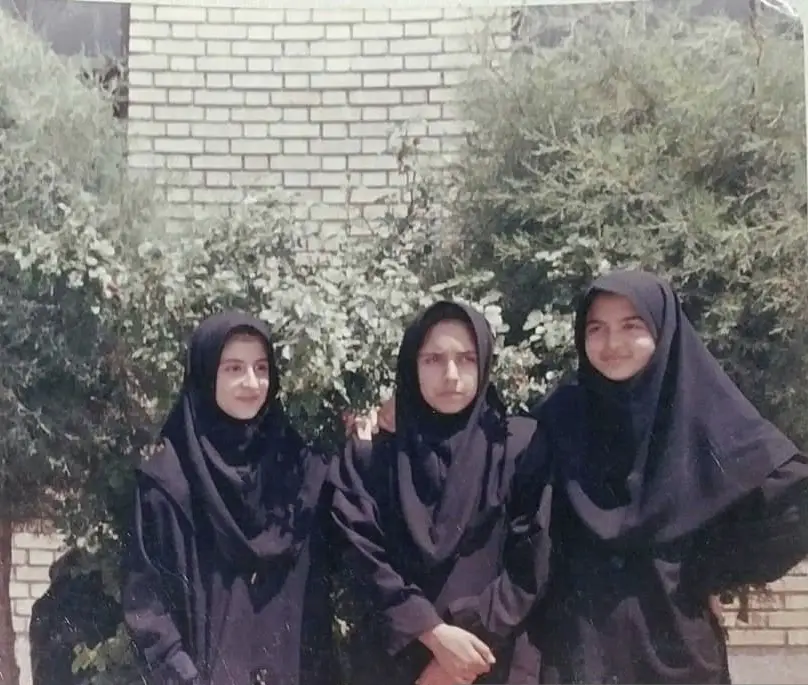
There is relatively more flexibility towards artistic activities at universities in Iran. In the late ’90s, young students, like Samaneh, found more freedom to explore the avenues of music as centers for arts, culture, and music sprouted on university campuses, allowing students, particularly women, to enter the art scene.
“The music center, Kanun e Musiqi, was basically two rooms where musicians would gather. It was the first time I saw people play instruments. I immediately joined the female chorus. We’d hold small concerts in our university town, and later in Mashhad, the province capital.”
These centers were invariably funded by the students themselves, and no professional vocal training was ever offered; young music admirers had to educate themselves. Nonetheless, this was a window of opportunity for women to join music bands. A few years later, during Ahmadinejad’s term, women were once again pushed to the corners of invisibility with strict restrictions implemented by his administration. In fact, it became a common practice for authorities to disconnect women’s microphones on the stage without any prior warning.
“It was so humiliating. There was no regard for all the time and energy we had invested in rehearsing. We were not even given the courtesy of knowing what to expect. While standing there and performing, women’s microphones would suddenly be cut off. We felt paralyzed.”
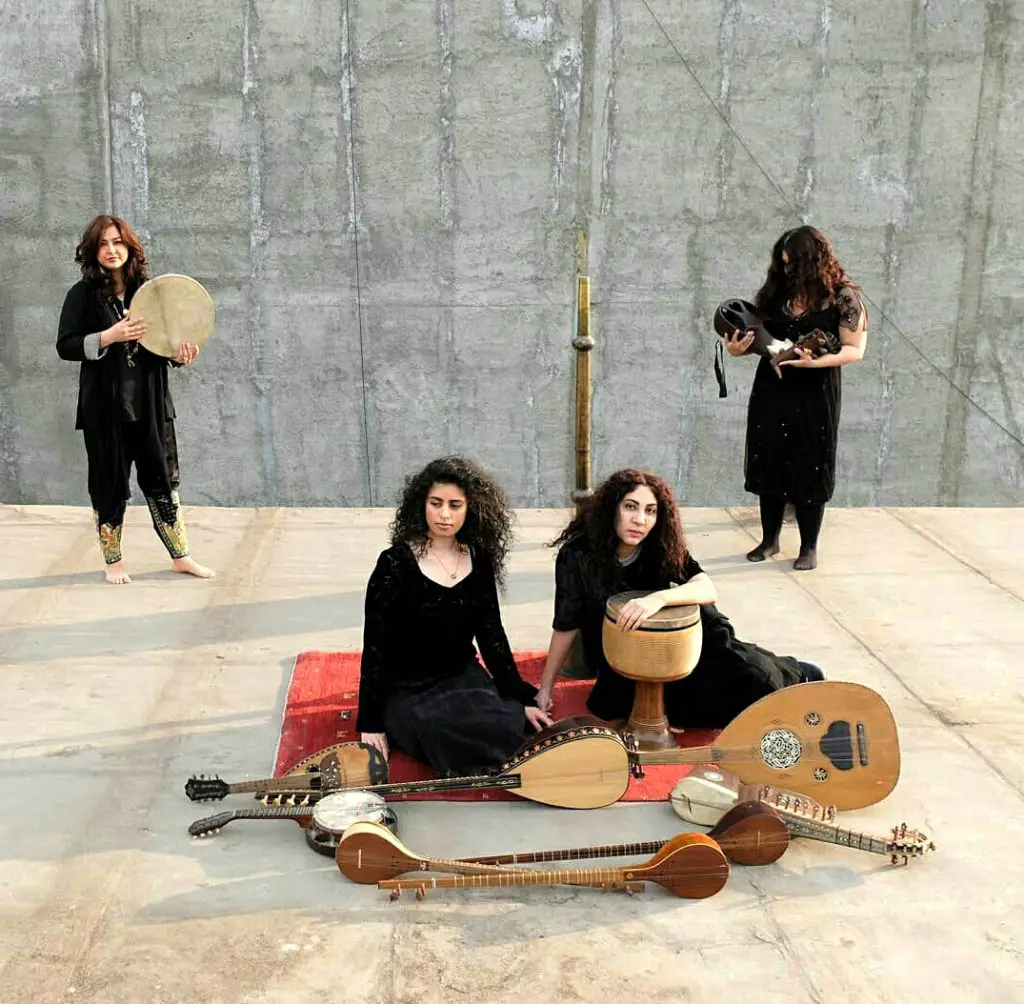
Samaneh’s Advocates
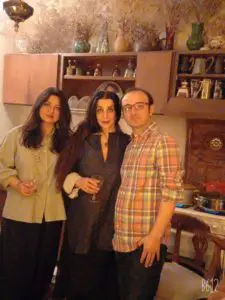
Samaneh’s husband, Meysam, has been her biggest advocate ever since they met in college. A poet and an amateur musician himself, he has been entirely supportive of her ventures, bolstering her career. “He’s always there playing music when I sing, whether we are at home with our little girl or out with friends and family. Meysam has never denied me the means to pursue my passion.”
Her brother, Hamed (Hamed Slash), a rapper musician residing abroad, consistently encouraged Samaneh to pursue her dream of becoming a professional singer. “Hamed would always push me to work towards recording my music until I did.” She collaborated with her brother on a track called “Kuleh Poshti” (backpack), as Samaneh sings the following well-known poem by the eminent 11th century, Persian female poet, Mahsati Ganjavi, who condemns religious obscurantism, fanaticism, and dogma. The song tells the story of a young girl who is fed up by society’s restrictions, leading her to grab her backpack and head down the road.
| ما را به دم تیر نگه نتوان داشت در حجره ی دلگير نگه نتوان داشت آن را که سر زلف چو زنجير بود در خانه به زنجير نگه نتوان داشت | We can’t be halted by the tip of the arrow In a melancholic cell The one whose hair is like a chain Can’t be chained indoors |
Nasrin Assadian, Samaneh’s vocal coach, played a central role in her development. After the revolution, Nasrin was one of the very few female professional vocal coaches in Mashhad. She strives to build a safe space for girls and women to cultivate their passion for music and the arts.
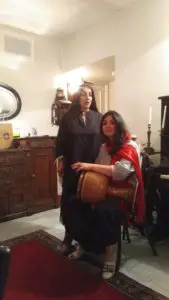
“After graduating from college, I decided to pursue singing seriously. I took singing lessons with Nasrin. She is one of the most brilliant individuals I have ever met. Nasrin has been a true inspiration and a role model to generations of women. “
Last, but not least, is Mohammas Nasim Kushnawas, lead singer and Rabab player in Khushnawaz band. Nasim’s family immigrated from Afghanistan to Iran when he was a child. He grew up in a family of artists and musicians, where his musical talent thrived. Like many Afghan residents in Iran, he has been subject to discrimination and bias. Although his interest in singing Afghan folk music has not always been welcomed by his fellow Iranian colleagues, Samaneh and Nasim enjoy a professional relationship, creating music from Afghanistan and Iran.
“The one person who encouraged me most to perform live and record music in the studio is Nasim. Contrary to what you hear on the news and the stereotypes about Afghans, Nasim exerts himself to include women’s voices in music. We’ve recorded a couple of tracks together and have an album coming out soon.”
A Passion for Folk Music & Singing in Different Languages
Samaneh is tremendously passionate about different ethnic groups and their variations, cultural components, and even contradictory traditions and behaviors, which, at the same time, follow a certain harmony. She thinks folk music, despite its particular ethnic characteristics in each country, has a common spirit. To her, folk music is the crystallization of the spirit of ethnic culture.
Her mother tongue is Persian (or Farsi), but she sings in several languages. She believes that prejudice toward a particular language can be an obstacle to truly learning how to sing.
“There are those who think that because English is an international language, it’s the best jargon for singing. I sing melodies in any dialect I enjoy, like the Afghan or Tajik. I’m also drawn to Arabic, Spanish, and Hebrew. I genuinely relate to these melodies and the rich cultures behind them. Whenever I sing these melodies, I see my soul fly, exploring unknown parts of my voice and vocal chords.”
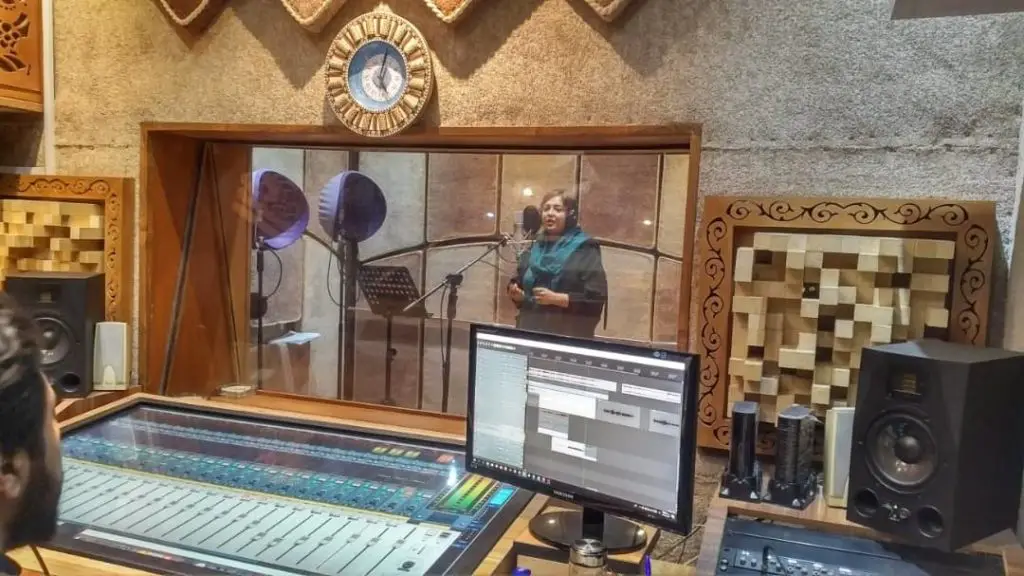
Naria Recording at a Studio in Mashhad, Iran (2020) 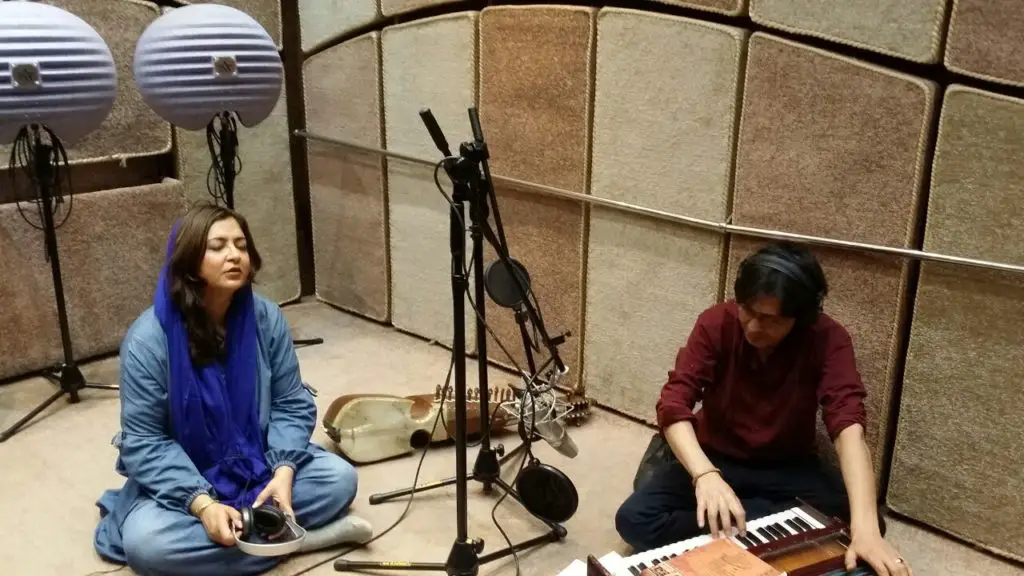
Recording with Nasim (Khoshnavwaz Band), 2020 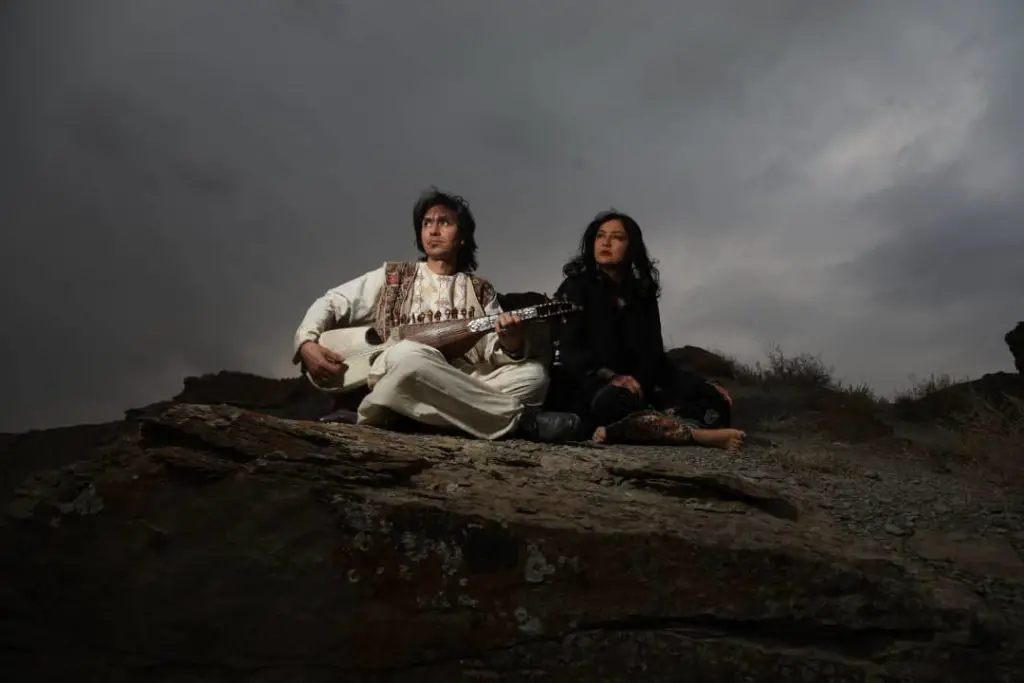
Naria and Nasim on the set of Shahr Khali (2020)
Challenges Samaneh (Naria) has Encountered
One of her main challenges was finding professional musicians (predominantly males in Iran) willing to collaborate with female solo vocalists. Most male musicians and singers prefer to collaborate with men and avoid the potential legal obstacles or any other trouble they might face if they choose to cooperate with female singers.
“In smaller cities or towns, where resources are more scarce, it’s even more challenging to find professional female vocal coaches who can train you, and professional male musicians are not very keen on rehearsing with female singers because they know that concert halls will not be expecting women.”
Financial prospects for female singers are also grim. Many are not usually paid decent wages and are manipulated by male singers who refuse to pay them, claiming women’s complaints would not go anywhere in the current judicial system. “I know many women who don’t make much for their performances although some are in Tehran where there are ample opportunities for professional growth.” In cities like Mashhad, one of the country’s religious hubs, things are worse! No concert permits have been issued for years, regardless of the performers’ genders.
Future Prospects For Women Singers in Iran
In recent years, the widespread influence of social media has helped women in Iran become more vocal about their conditions. In particular, Instagram is a popular platform where Iranian female singers promote their work in spite of potential legal consequences.
Informal free concerts, which do not require a permit from the government, have multiplied in recent decades. Female singers get to perform solo at these events for mixed audiences, who are usually culture enthusiasts.
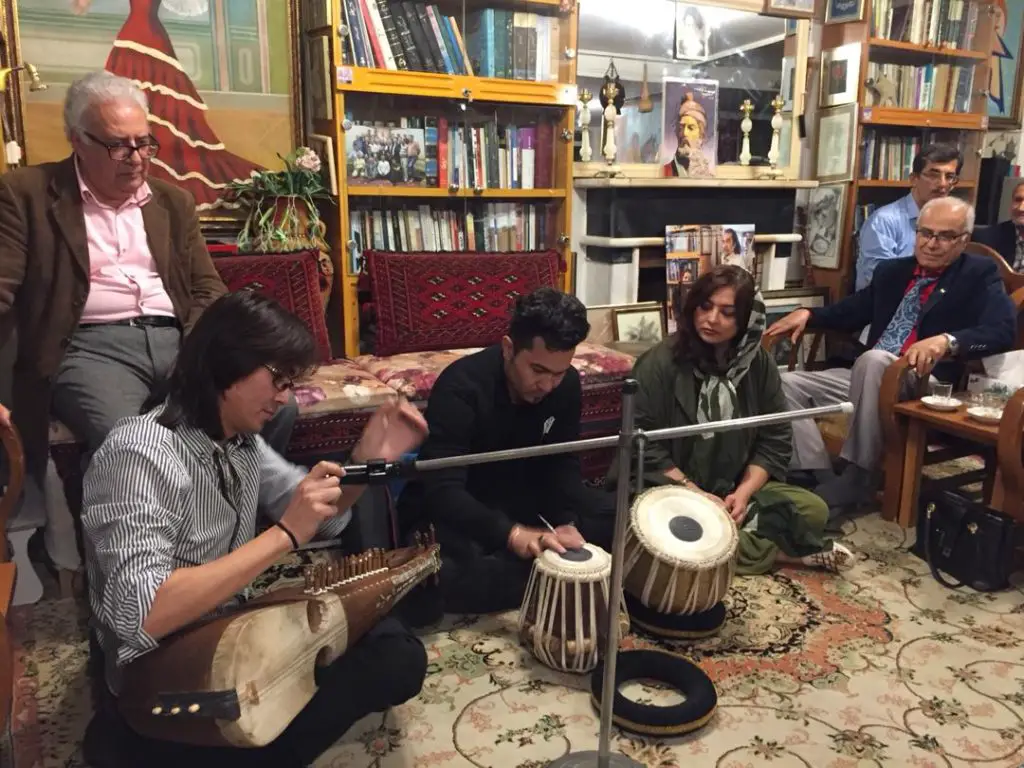
Samaneh is hopeful that women’s demands for their right to sing will become effective in the coming years. She believes that this demand still has a long way to go while the country is struggling on several fronts.
“The future of Iranian women singers is very unpredictable and depends on many factors. Women’s future in Iran is not separate from the rest of the country, which is facing socio-political and economic crises. Cultural change is essential to eliminating gender-biased restrictions for women. Despite all the obstacles, Iranian women have not given up on their dreams. We sing and we pour our souls into our voices. We don’t regret singing. The world needs women’s songs driven by their passion and love. As the great Greek female poet, Sappho, once said, ‘Someone, I tell you, in another time will remember us.'”
To support Iranian women’s struggles, watch and share the independent feature documentary about female singers inside Iran titled, Female Voice of Iran by Andreas Rochholl, Yalda Yazdani, and Sebastian Leitner which premiered on YouTube on Nov 28, 2020.

